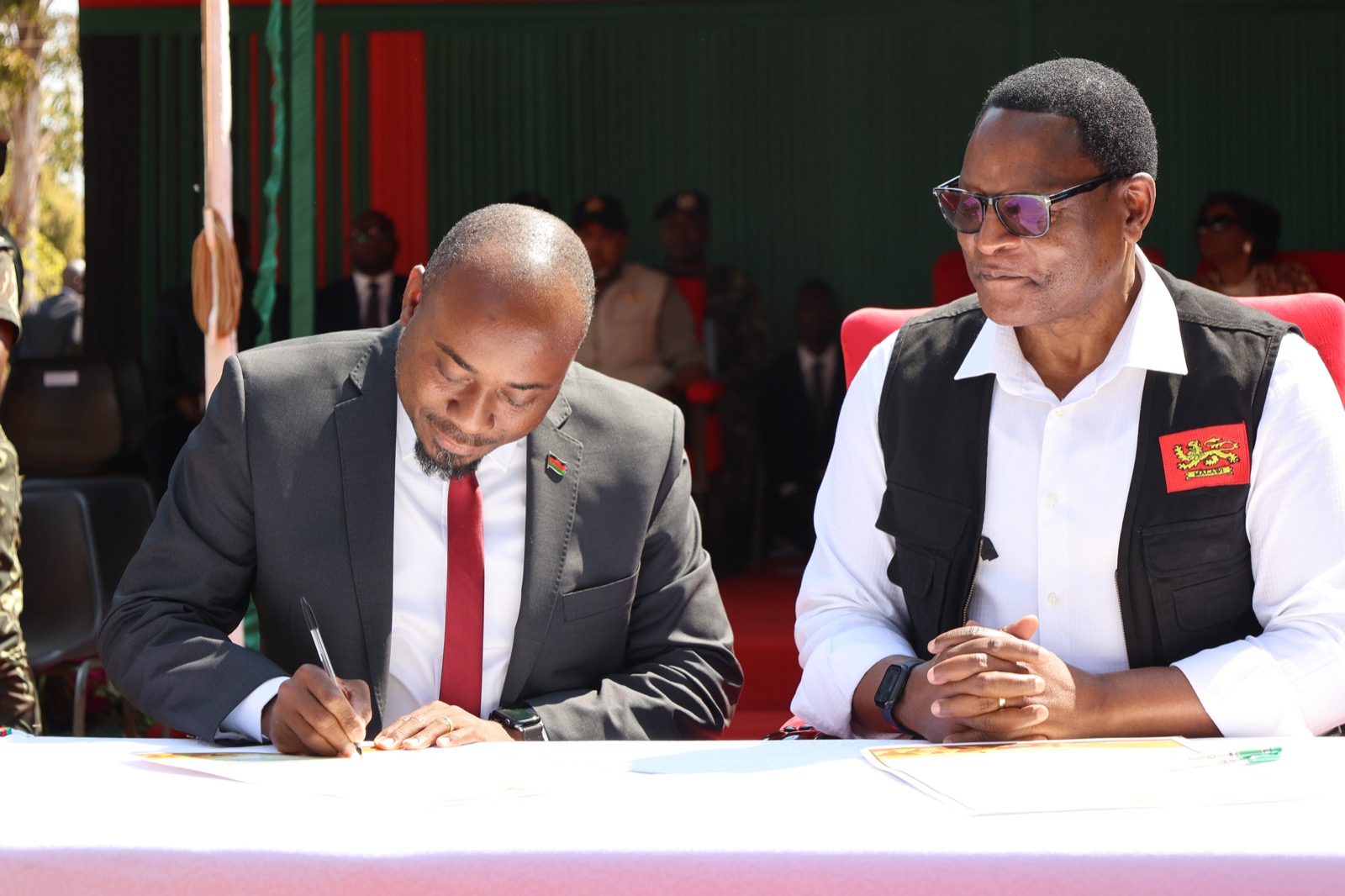Blogs

All paramount chiefs, senior chiefs and traditional authorities in Malawi, in a signed Call to Action following the first-ever “National Chiefs Forum on Integrated Natural Resources Management and Transition to Sustainable Agriculture and Livelihoods in Malawi” on August 30–31, 2023, committed to protecting forests, ending illegal fishing and trade of wildlife, and supporting sustainable agriculture practices to ensure food security.
The forum was convened by the Ministry of Natural Resources and Climate Change, in conjunction with the Ministry of Local Government, Unity and Culture. It received financial and technical support from the German Federal Ministry for the Environment, Nature Conservation, Nuclear Safety, and Consumer Protection (BMUV), International Union for Conservation of Nature (IUCN), GIZ, and the USAID-funded BUILD project (represented by Leadership for Environment & Development Southern & Eastern Africa – LEAD SEA and African Institute for Development Policy – AFIDEP), among other partners.
“As the stewards of natural resources and culture, we recognise the interconnectedness of population, health, environment, and sustainable development. We pledge to promote renewed and prudent management of natural resources to enhance the sustainable ecosystem services and resilience to climate change,” noted the Call to Action.
In discussions over the two days, the chiefs outlined ways to sensitise and mobilise their communities on ways to sustainably use natural resources and guard against vandalism, set up appropriate by-laws that support sustainable practices for improved natural resources management, and incorporate cross-sectoral strategies that address population growth and gender inequality.
Dr Eliya Zulu, Executive Director of AFIDEP noted that the forum signifies a significant stride toward fostering collaboration and empowering communities by enabling chiefs to be an integral part of Malawi’s development process. “Chiefs must move beyond being informed or contacted when programmes are implemented; they should define, own, and drive the development process. This shift is pivotal in translating policies into impactful development on the ground,” he asserted.
Experts from LEAD SEA and AFIDEP organised a half-day workshop as part of the forum’s activities, which saw select paramount and senior chiefs engage in in-depth discussions on pathways towards realising their commitments and the requisites for achievement. This included understanding and exploring cross-sectoral and systems thinking approaches that integrate population, health, and development issues into the broader context of natural resource management for climate resilience and sustainable livelihoods.
Professor Sosten Chiotha, Regional Director of LEAD SEA, who chaired the planning committee for the event, stated that we need to have an integrated approach towards natural resource management: “Quite a lot of government documents starting with the National Environmental Action Plan in 1994 have cited population as one of the drivers, creating pressures for environmental degradation. The government has recently launched the population policy, and this guides how we can manage population in terms of integrating natural management with reproductive health and voluntary family planning.”
He further stated that there is a crucial need to empower girls and women, as for instance, gender-based violence and truncated education manifest during extreme weather events that affect agricultural productivity and food security. Cross-sectoral strategies in national climate change adaptation and mitigation plans to address these linkages are therefore essential.
Senior Chief Kalumbu, representing Lilongwe District, lauded the engagements as highly productive, emphasising that the forum provided a unique platform for chiefs to address their natural resource management challenges and independently craft solutions. “As chiefs, we’ve discussed what is happening in our communities; we’ve identified both the challenges and the solutions; and we’ve deliberated on concrete actions to address these challenges upon our return, with action plans developed by us,” he affirmed.
Regarded as custodians of a number of socioeconomic elements in their communities, chiefs facilitate the provision of communal goods and enforcement of communal practices. It is expected that the forum will strengthen local structures and lead to improved governance of forests and natural resources across the country for the health and wellbeing of all.

